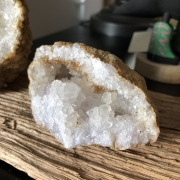Escape. Explore. Connect.
I do a lot of walking in parks. This past week I noticed the signs at Joe Creason Park had the following tag at the end: Escape. Explore. Connect. What good advice. People seem more stressed today than ever before. Relationships seem more complicated. We’re connected to social media, the news networks, podcasts, and our smartphones to the point that most of us are mentally exhausted. We worry about our kids, our finances or jobs, whether or not to vaccinate our kids (the answer, of course, is yes, yes, yes, get your children vaccinated) and we worry about our health and mortality.
If any of this applies to you, here is my prescription: Escape. Explore. Connect. Sometimes, it’s that simple. I tell people all the time that one of the benefits of getting out and exploring the forests and parks is the feeling that time slows down. It happens to me all the time. I spend 3 or 4 hours hiking and it seems like I’ve been out for a day. An overnight backpacking trip feels like a full weekend.
Time slows down when you Escape, Explore, Connect.
Lately, I’ve been in the forests exploring for geodes. I am fascinated with them. I love to bring them home and crack them open to discover the quartz crystals inside. Sometimes they’re solid quartz. They are all beautiful. Some are the size of walnuts and some the size of baseballs. What I’ve discovered is that they took hundreds of thousands, if not millions of years to form. Air bubbles developed underground and were slowly filled with crystals by quarts-saturated water. There are lots of ways to connect with the forest and this is one of them. I’m out there in the creek beds exploring and escaping. I am carried away to a time millions of years ago. Escape. Explore. Connect.
This spring, I hope to begin collecting, drying and mounting plants and their flowers. Escape. Explore. Connect.
This March, we are going to host a family-friendly hike in the Jefferson Memorial Forest. It will be the first Saturday of Spring, March 23, 2019. It will be your chance to get some Nature Therapy and to Escape. Explore. Connect.





